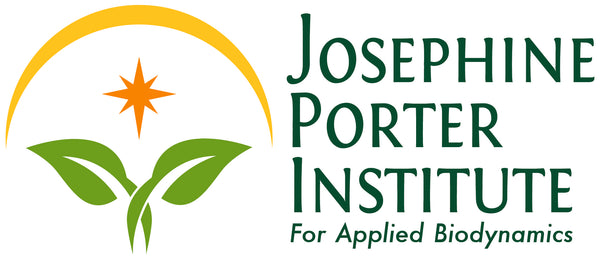The Spiritual and Social Dimension of Stewardship
Share
Stewardship Begins in Intuition
Stewardship in biodynamics is not merely an environmental or practical responsibility; it is a spiritual vocation deeply connected to the cultivation of intuitive thinking—a disciplined process of knowing that goes beyond vague feelings or fleeting impressions. Intuition is not a mere vague feeling, as the term is commonly used; intuition is the subtle process by which the soul arrives at a new concept, a fresh insight. This process must first be felt, experienced deeply, before it can be consciously grasped. We are all familiar with the eureka moment when a “lightbulb” goes off in our heads—that epiphany is the fruit that grows out of the soil of intuition. Intuition, much like the soil, is often neglected because it is largely out of sight. We rely on it to do everything, but because it is so pervasive, it is easy to forget.
When a person develops intuitive thinking, he frees himself from the fetters of blind impulse and feeling; he becomes capable of seeing things in their essential nature and grasps the moral necessity of acting accordingly.
— Rudolf Steiner, Intuitive Thinking as a Spiritual Path¹
This means intuition is fundamentally the process of learning itself, where feeling is the gateway to intellectual insight. It is only through this felt experience that true understanding emerges. If something is not first felt, it is not noticed. If it is not noticed, it cannot be known. Intuitive thinking is about becoming aware of the process of thinking itself, not just thinking in terms of inherited knowledge – “dead” knowledge.
Intuition on the Farm
In the context of biodynamics, this means that the farmer must feel the living processes of the farm organism before meaningful knowledge or action can arise. This felt awareness informs ethical decisions and nurtures a deep connection to the land and its cycles.
Rudolf Steiner also emphasized that this kind of learning enables true freedom:
When a person develops intuitive thinking, he frees himself from the fetters of blind impulse and feeling; he becomes capable of seeing things in their essential nature and grasps the moral necessity of acting accordingly.
– Rudolf Steiner, Intuitive Thinking as a Spiritual Path.
This moral clarity grounds biodynamic stewardship in responsible action informed by lived experience rather than abstract theory.
Through this integration of feeling and thought, the biodynamic farmer participates not only in the regeneration of the earth but also in the renewal of human consciousness and community.
Suggested Reading and Resources
- Rudolf Steiner, Intuitive Thinking as a Spiritual Path (GA 293), translated by Michael Wilson (SteinerBooks, 1995).
A foundational work on the nature of intuitive cognition and spiritual development.
- Stephen Harrod Buhner, The Secret Teachings of Plants (Bear & Company, 2004).
Explores the role of perception and feeling in ecological relationships and healing.
- Henri Bortoft, The Wholeness of Nature: Goethe’s Way of Science (Floris Books, 1996).
A masterful introduction to Goethean science and holistic perception.
- Craig Holdrege, Thinking Like a Plant: A Living Science for Life (Lindisfarne Books, 2013).
A groundbreaking look at plant intelligence and sensory perception, deepening understanding of non-human cognition.
-
Josephine Porter Institute Substack — ongoing essays by Stewart Lundy on biodynamic education and ethics.
-
Goetheanum Publications — lectures and research by Rudolf Steiner and contemporary anthroposophists on biodynamics and spiritual science.
